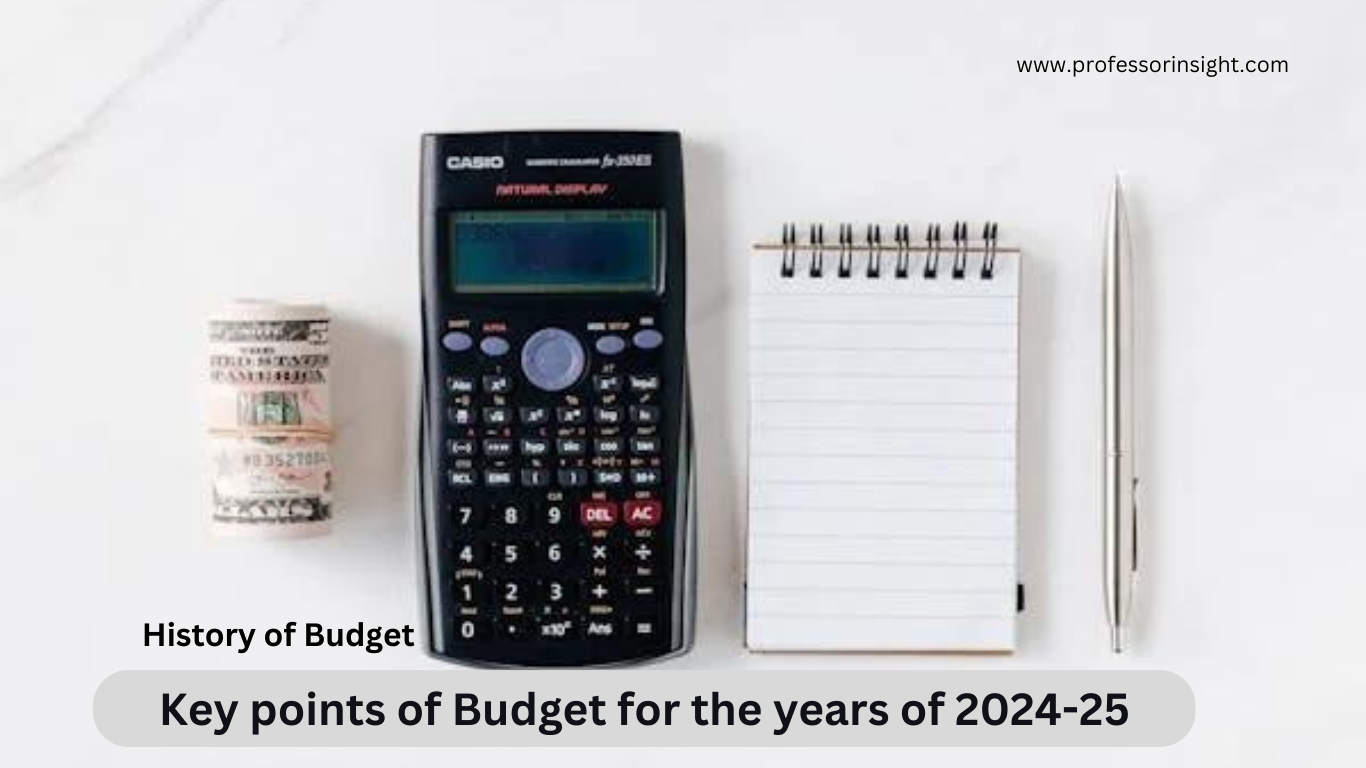History of Budget
Hello friends, in this special article of today, you are heartily welcome to the journey of India’s History of Budget for the year of 2024-25. Recently, the first special session of the newly formed 18th Lok Sabha has ended. Now it is the turn of the budget session of Parliament in which the budget will be presented for the country. Through this special article, we will make you aware of every important aspect related to the budget of India and will also try to give information about useful facts for the exam. So, let us start a long and interesting journey related to the budget.
First of all, let us know about the origin of the budget. This word started in Europe in the 18th century. The word budget is derived from the Latin word Bulga, which was later replaced by the French word beau gat de. This French word means a leather bag. Over time, the word budget started being used in English in place of this French word. It is worth noting that the word budget is also used in India. The word budget may be new, but its practice is very old. For centuries, the people of India have been using the budget to improve their lives. In the Vedic period, we see that a tax called Bali was voluntarily given to the king for the purpose of security, which later became a compulsory tax. When we study the Artha shastra written by Kautilya, we find that many types of taxes were in practice in the Maurya period and the king used to divide the state income on the basis of various expenses. The same system is seen during most of the dynasties in ancient India, where the royal court used to take special care of its income and expenditure, just like the government does at present through the budget and its treasury policy.

If we talk about the Mughal period, then at that time the Mughal rulers used to determine land revenue on the basis of production, along with this special attention was also given to trade policies, just like the Government of India does at present through the budget and balance of payments. In this way we see that a process like budget has been adopted in India since ancient times, but it looks different from the modern budget. If we talk about the modern budget in India, then the tradition of presenting the Union Budget started in 1857, during the British rule. After the rebellion, power was transferred from the India Company to the British Parliament in 1858. Also, during this time, the condition of the Indian economy was also faltering. In such a situation, the biggest question at this time was how to improve the situation. In view of this, it was started in 1859. It is worth noting that during this period, James Wilson also laid the foundation of the income tax system, which was implemented from 24 July 1860.
Therefore, every year 24 July is celebrated as National Income Tax Day. When India got independence and the foundation of democracy was laid through the Constitution, since then the Parliament started presenting the budget for the development of the country and from time to time there have been positive changes in the budget in the country. Even today, the budget has a very special importance in the economic development of the country. So, the viewers will know in the next episode how the first budget was after independence and how the budget of the Government of India is prepared. See you soon in the next article.
Key points of Budget for the years of 2024-25
- There is also a continued focus on the Union Territories of Jammu & Kashmir and Ladakh and the Northeast Region.
- Create employment and drive growth by encouraging the private sector.
- Governance will increase capital expenditure (Capex) and raise more revenue through disinvestment.
- The key theme of the Union Budget 2024-25 is to focus on inclusive growth which particularly encourages the concept of Sabka Sath, Sabka Vikas, which includes:
farmers, women, youth, Scheduled Castes, Scheduled Tribes, Other Backward Classes (OBC), PwD and Economically Weaker Sections. - Overall priority to the underprivileged (Preference to the deprived).
- Consultations through collaborative efforts of the Centre and States
Also Read – Key Study of Amortization in Accounting:




Pingback: Analyzing financial statements and its important in accounting » professor insight
Pingback: Supreme Court declares NEET UG 2024 result » professor insight